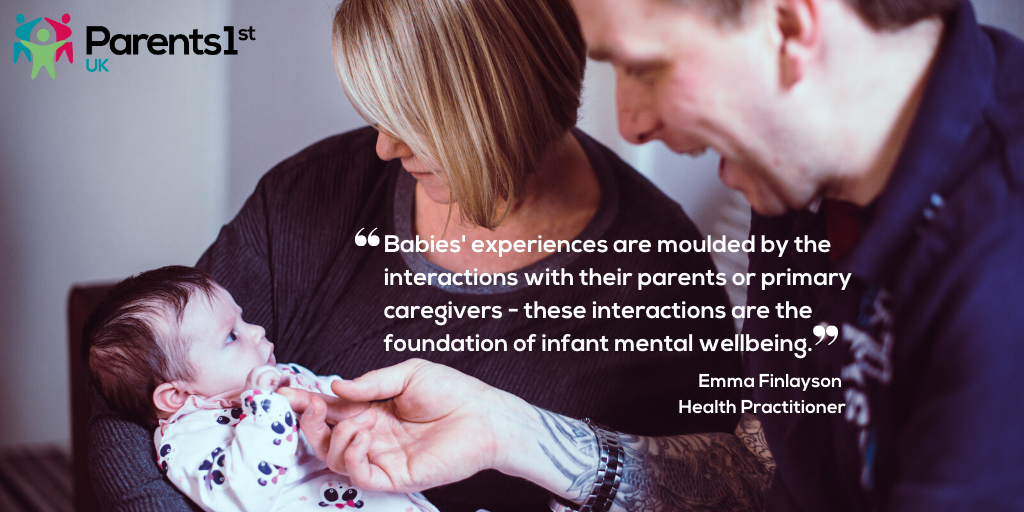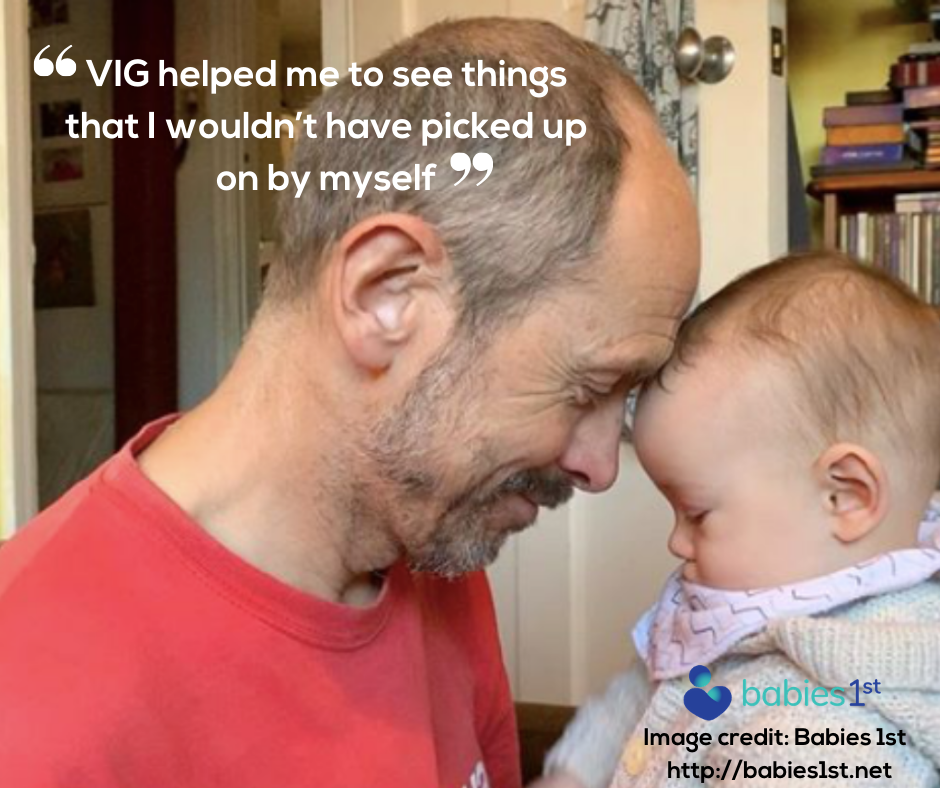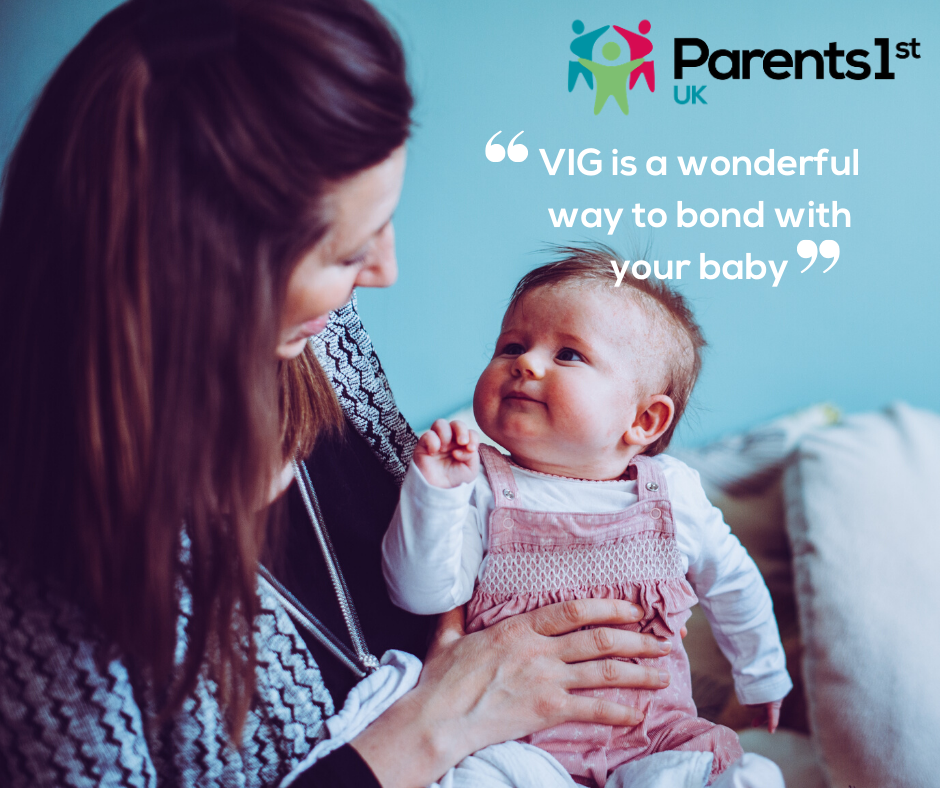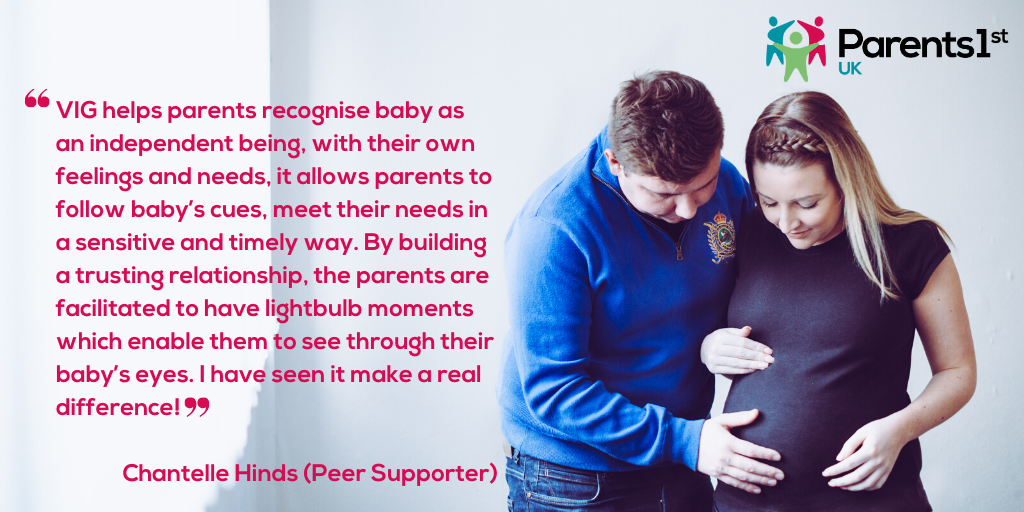Written by Emma Finlayson, Health Practitioner, Parents 1st Essex
I’m a practicing midwife and also a health practitioner working with the Parents 1st Essex peer support programme. I am passionate about early prevention and the emotional wellbeing of babies – we need to invest in our future generation.
Infant mental health can be defined as the social and emotional wellbeing and development of children in the earliest years of life. It reflects whether children have the secure, responsive relationships that they need to thrive.
Infant mental health is central to the development of good mental, physical and emotional wellbeing for future generations. Infant mental health matters more than ever.

At Parents 1st Essex we specialise in effective volunteering and peer support during pregnancy, birth and becoming a parent.
Pregnancy, birth and becoming a parent is a life-changing experience. A happy and responsive parent means a baby’s development will flourish, and every parent deserves support and every baby deserves the best possible start in life.
The work of effective infant mental health aims to get things right for the baby from the start, recognising when things aren’t going well and working to support infants and their parents or carers.

As well as offering peer support, Parents1st Essex also offer VIG (Video Interactive Guidance). Peer support workers introduce VIG because it is a great tool for “Seeing the world through babies’ eyes”. VIG uses video to film interactions between parents/caregivers and their bump/baby.
Our specially trained peer supporters film mother and bump or parent/partner for a short while, then edit the film to identify the very best moments. Afterwards, they look and reflect together at what makes those moments special.
Taken in stages, the videos help caregivers to think about their developing baby during pregnancy.
Once baby is born, through working together the process of VIG assists caregivers to see how their baby is feeling and communicating in the early postnatal months.
How does VIG support infant mental health?
Babies are dependent on parents/carers responding to their needs. Parents who can sensitively tune into and respond to their baby’s needs are supporting their baby’s development and emotional resilience in a profound way.
Most of us are aware of the importance of early secure attachment, and evidence suggests that a secure attachment enables children to function well in many aspects of their development. Therefore, promoting secure attachment is an aim of many early interventions.

Attachment is facilitated through parental sensitivity to signs of distress from the infant. VIG has been shown to improve parental sensitivity by strengthening parent’s sensitivity and responsiveness to their infant’s cues, thereby improving secure attachment.
VIG used in pregnancy can help develop early attachment and improve infant mental health before baby is born.
Until recently, it was thought that the unborn baby was a blank slate, devoid of sensitivity, feeling, and any interactional capacity. We are now aware that the unborn baby has well-developed senses and reacts to stimuli from mum and the environment.
We have an increased understanding of the physical and emotional influences on the unborn baby. Mum and partner can be encouraged to learn how the world of the womb might be for their baby and using VIG can facilitate this learning.
We know that baby begins to hear sound at around 18 weeks of pregnancy, and at 26 weeks can react to noise inside and outside the womb and may be soothed by the sound of mum’s voice.
From 32 weeks baby can start to recognise certain vowel sounds which lead to early language development, and mum and partner can be encouraged to talk and sing to their bump, helping to promote brain development and attachment.
Babies at 26 weeks can move in response to a hand being rubbed on the mum’s tummy, encouraging feelings of love and attachment.
Communication, both physiological and emotional, between parents (particularly mum) and the unborn baby can have a significant impact on future health, development and mental wellbeing. Quality peer support starting pregnancy helps mums to keep well and feel supported. Introducing VIG at this time helps expectant parents to tune into their developing baby and start to build attachment.
Chantelle Hinds, one of our peer support workers who delivers VIG, described how she feels VIG impacts on the wellbeing of baby and how it makes a difference to the relationship between baby and parent:

It has been a challenging time for everyone’s mental wellbeing recently and it will probably be some time before we will really understand the impact on perinatal mental health, and subsequently infant mental health.
However, during lockdown, there have been some positive outcomes for building relationships between parents and babies. Parents have had no visitors due to restrictions in place and this has meant that they have had more time just with baby to bond and to adjust to the early days of becoming parents.
There has been some early anecdotal evidence to suggest breast feeding rates have increased and more babies are regaining their birth weight on their day five check. Hopefully we can reflect on these positives and look at how we can encourage parents and health professionals to keep seeing through babies’ eyes.
During this difficult time, it is especially important that women and their partners can access support, as they may be feeling isolated and afraid.
At Parents 1st Essex we offer one to one and group support during pregnancy, birth and beyond to help prepare for birth and parenthood and to promote the importance of their baby’s mental health. Please see our website for details.
To find out more about VIG please visit: http://babies1st.net/what-is-video-interaction-guidance-vig
Further reading:
Celebi M, Cox F, Hinds C, Suppiah C & Taylor D. Training peer supporters in Video Interaction Guidance (VIG) International Journal of Birth & Parent Education, Vol 6, Issue 1: https://ijbpe.com/journals/volume-6/38-vol-6-issue-1
O'Hara L, Smith ER, Barlow J, Livingstone N, Herath NINS, Wei Y, Spreckelsen TF, Macdonald G. Video feedback for parental sensitivity and attachment security in children under five years. Cochrane Database of Systematic Reviews 2019, Issue 11. Art. No.: CD012348. DOI: 10.1002/14651858.CD012348.pub2. https://mcusercontent.com/a6ee07aecbdbe7065c49c6b40/files/18060148-681c-41ce-aecc-c43de7ab3110/Launch_and_IMHAW20_V2.pdf

